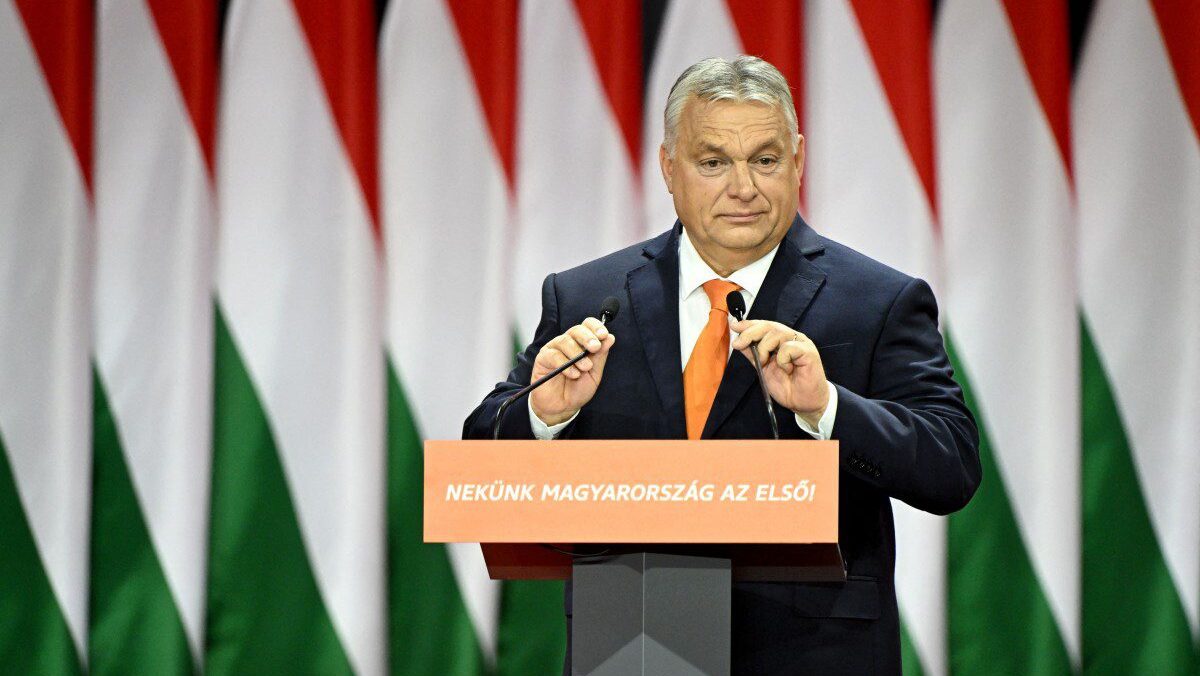Budapest is sticking to its principles as EU leaders are gearing up for the year’s last EU Council Summit (EUCO) on December 14-15th, where Ukraine’s EU accession and a giant €50 billion aid package will be the main courses on the table. Hungary has been opposing both, but there is room for compromise on the money part—as long as the country also gets what it’s rightfully owed, PM Orbán’s chief advisor told Bloomberg Tuesday evening. In a separate interview with Mandiner, the prime minister himself confirmed this, while also explaining the difference between financial and strategic questions.
“Hungary’s EU funding and Ukraine’s financing are two separate issues,” the prime minister’s political director Balázs Orbán said in the interview. “But if the EU insists that Ukraine’s financing should come from an amended EU budget, then the two issues become linked.”
The top advisor, who—despite the name—is unrelated to the prime minister, said Hungary was ready to compromise on the €50 billion aid package but only if the entirety of Hungary’s frozen EU funds, about €32 billion, were finally released.
Naturally, Brussels’ leftist establishment reacted with anger and frustration to the news of a possible deal on the aid package in exchange for releasing all the funds, accusing Orbán of “blackmailing” the EU (even though it was Brussels to withhold the funds in the first place), and—the true democrats they are—calling for his voting rights in Council to be stripped instead.
Some, however, seem a bit more level-headed and understand that the EU must also take steps to meet Budapest midway. “We need to give [Hungary] something. That hurts, but that’s the way it goes,” an unnamed senior diplomat told Politico.
Right now, the Commission is set to unblock €10 billion from the over €20 billion worth of cohesion funds meant for Hungary under the current financial framework after Hungary implemented judicial reform.
However, the rest of the cohesion funds (€11.7) as well as Hungary’s share of the pandemic recovery funds (€10.4 billion) remains frozen, even though Budapest says every request from Brussels has been sufficiently addressed, whether about anti-corruption reforms or human right concerns.
“Everybody knows that Hungary has addressed and implemented every request and condition,” PM Viktor Orbán said in Tuesday’s exclusive interview.
There are no longer any objectively true criticisms about the quality of governance in the country. … Therefore, we don’t need to do anything else in exchange for the EU funds, because that’s our money.
The PM explained that even though it’s not fair to withhold funds that are rightfully owed to a country under the EU treaties solely for political reasons, he would be open to compromise—but only on the aid package, and not the accession talks.
In financial questions, I am willing to make financial deals. But I’m not willing to make strategic or political deals.
Principles are not for sale, after all, and Ukraine’s rushed EU membership without proper impact assessment is simply contrary to the interests of Hungary—and probably quite a few other smaller countries who don’t dare to speak out. Not only because Ukraine is locked in a conflict with a very uncertain future, but also—as the German Economic Institute recently estimated—Kyiv’s EU membership would cost €190 billion, or 17% of the entire EU budget in the first seven years, meaning that nearly all member states would have to become net contributors. This essentially goes against the logic of the cohesion funds which are supposed to bring the southern and eastern half of the continent closer to the rich north’s economic level.
Furthermore, Ukraine is still lacking many of the important rule-of-law reforms needed to enter the club, yet Brussels is in favor of fast-tracking its accession anyway, simply because of the war.
Under EU law, to approve someone’s membership is a merit-based decision; it depends on the progress of the candidate in the relevant policy areas, PM Orbán explained. “Now, the EU wants to break with this tradition. … In fact, Ukraine is not in a shape to open accession talks with the EU, but because of the war—for geostrategic, or shall we say political, reasons—[they say] the negotiations must be opened anyway.”
The European Union is about to make a terrible mistake that must be stopped. Even if 26 [member states] want to make this mistake, and only we are against it.
According to the prime minister, the EU is completely unprepared for the consequences of Ukraine’s accession, which would damage European economies in countless ways, most of which Brussels refuses to even think about, such as agriculture, or the freight industry.
During the debate on Ukraine's potential EU accession in the Hungarian Parliament, @PM_ViktorOrban stressed that now isn't the right time:
— Balázs Orbán (@BalazsOrban_HU) December 13, 2023
❗Compared to others (3+ years), Ukraine achieved candidacy in a swift 4 months, despite not meeting three of seven set conditions by the… pic.twitter.com/54Qi7N2Rd5





